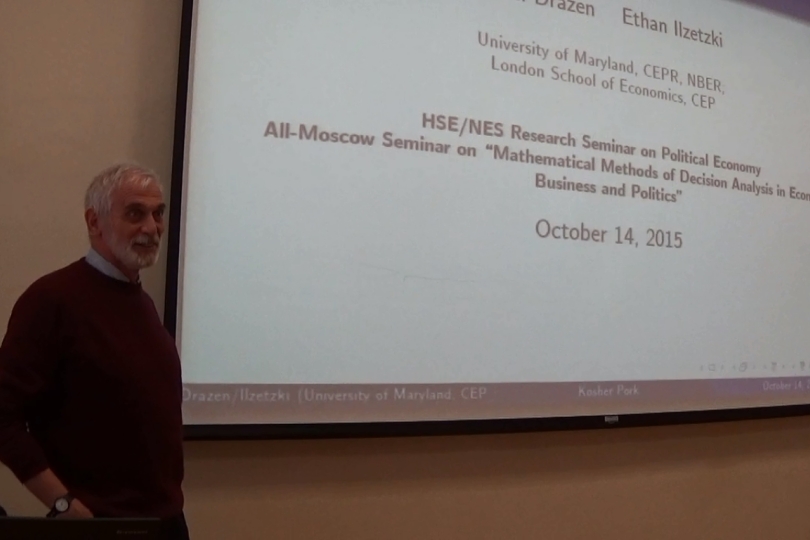Cостоялось внеочередное совместное заседание общемосковского научного семинара "Математические методы анализа решений в экономике, бизнесе и политике" и "Политическая экономика"
Автор доклада: Allan Drazen (Department of Economics, University of Maryland, USA)
Тема: Kosher Pork

There are two common views of pork barrel spending. One view, reflecting most conventional wisdom, as well as some leading academic research, is that pork barrel spending reduces general welfare at the expense of narrow interests, thus antithetical to responsible policymaking, especially in times of crisis. An alternative view is that pork .greases the legislative wheels. making possible the enactment of socially beneficial legislation that would otherwise not pass. In this paper we reexamine both arguments and show that hey depend on the nature of heterogeneity of interests across legislators. Under full information, but with heterogeneous ideology across legislators, policy compromise may be sufficient to pass beneficial legislation, with pork only lowering social welfare. In contrast, when agents are heterogeneous in both their ideology and in their information, allocation of pork may be crucial to passage of legislation appropriate to the situation. However, it does so not simply by bribing legislators to accept legislation they view as harmful, but also by conveying information about the necessity of policy change, where it may be impossible to convey such information in the absence of pork. Moreover, pork will be observed when the public good is most valuable precisely because it is valuable and the informed agenda setter wants to convey this information.
Дата
14 октября
2015
Рубрики
В статье упомянуты
